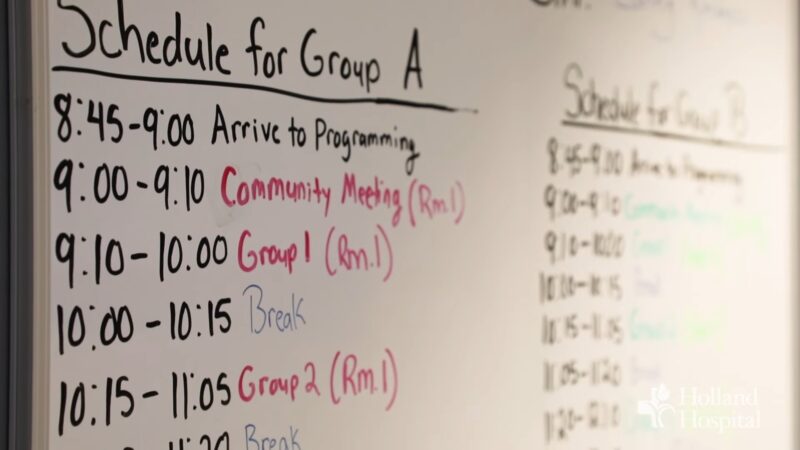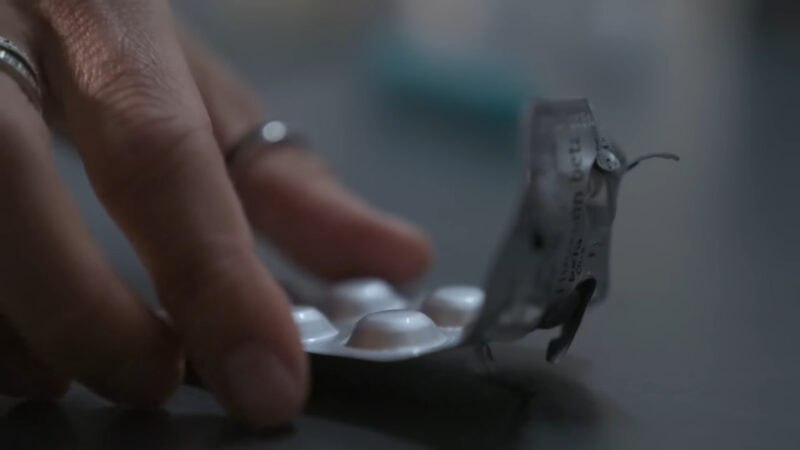Imagine this, you are striving to regain control of your life, but you’re not alone. Each day, as the sun takes its place in the sky, you immerse yourself in the structured, supportive environment of PHP. It’s a sanctuary, a haven that feels like home, only packed with professional therapists who are invested in your healing journey.
And, when the day winds down, you have the freedom to return to your own home, embracing the comfort of your own bed and the solace of your familiar surroundings. This is what makes PHP so special – it marries the rigors of intensive therapy with the ability to maintain your daily routine, offering an innovative, balanced approach to mental health treatment.
As an experienced advocate, I can tell you that a PHP could be the bridge you need to traverse the chasm between struggle and recovery, an instrumental part of the healing journey.
Who Can Benefit?
Partial Hospitalization Programs (PHPs) are designed for individuals who are struggling with mental health disorders that significantly impact their daily functioning. These may include conditions such as depression, anxiety, bipolar disorder, or schizophrenia.
- PHPs are particularly beneficial for individuals transitioning from inpatient care to outpatient care. They provide a step-down level of care that supports their ongoing recovery.
- They can also be an alternative to inpatient care for individuals who require intensive treatment but are able to safely live at home. This could include individuals who have a supportive home environment and do not require 24-hour supervision.
- PHPs can also be beneficial for individuals who have not found success with traditional outpatient treatment and need a more intensive level of care to manage their symptoms.
How Does a PHP Work?
They typically operate five days a week for several hours each day. During this time, patients participate in a variety of therapeutic activities.
- These activities may include individual therapy, where patients work one-on-one with a therapist to address personal challenges and develop coping strategies.
- Group therapy is another key component of PHPs. In these sessions, patients can share their experiences, learn from others, and develop social skills.
- Family therapy may also be included, helping to educate family members about the individual’s condition and involve them in the recovery process.
- The goal of a PHP is to provide intensive, structured care that helps individuals manage their symptoms, develop coping strategies, and work towards their recovery goals.
The Role of Medication
Medication can be a crucial part of treatment in a PHP. Psychiatrists within the program can prescribe medication, monitor its effectiveness, and make adjustments as needed.
- This ongoing management ensures that medication is used safely and effectively as part of an individual’s overall treatment plan.
- Medication can help manage symptoms of mental health disorders, making it easier for individuals to participate in therapy and engage in daily activities.
- The use of medication in a PHP is always tailored to the individual’s specific needs and is closely monitored to ensure its effectiveness and manage any potential side effects.
The Importance of Family Involvement
Family involvement can play a key role in an individual’s recovery. Many PHPs include family therapy as part of their treatment approach, helping to educate family members about mental health, improve communication within the family, and provide strategies for supporting their loved one’s recovery.
Challenges and Limitations
While PHPs can be highly effective, they also come with their own set of challenges and limitations.
- One of the primary challenges is the significant time commitment. PHPs typically operate five days a week for several hours each day, which can be difficult for individuals with work or family responsibilities.
- While PHPs provide intensive care, they do not offer the 24-hour supervision found in inpatient programs. This means that individuals must have a certain level of stability and a supportive home environment to safely participate in a PHP.
- Additionally, the success of a PHP depends largely on the individual’s motivation and commitment to their recovery. Individuals must be willing to actively participate in therapy and apply the skills they learn to their daily lives.
How to Choose the Right PHP
Choosing the right PHP involves considering a variety of factors.
- First, it’s important to look at the specific mental health disorders the program treats. Not all PHPs will be equipped to treat all conditions, so it’s important to choose a program that has experience and expertise in treating your specific disorder.
- The types of therapy offered are another key consideration. Look for a program that offers a variety of therapeutic modalities, such as individual therapy, group therapy, and family therapy.
- The qualifications of the staff are also crucial. Look for programs with certified and experienced professionals who specialize in mental health treatment.
- The program’s approach to medication management should also be considered. If medication is likely to be a part of your treatment plan, look for a program that offers comprehensive medication management services.
- Practical factors such as location, schedule, and insurance coverage should also be considered. The best PHP is one that fits within your budget, is covered by your insurance, and is conveniently located.
- It’s also beneficial to read reviews or testimonials from past participants to get a sense of the program’s effectiveness and the quality of care provided.
FAQ
How long does a typical PHP last?
The duration of a PHP can vary depending on the individual’s needs and the specific program. However, most PHPs last between one to three months. The goal is to provide intensive treatment that helps stabilize the individual’s condition and equips them with the skills needed to manage their symptoms in a less intensive outpatient setting.
Can I work or go to school while attending?
Because PHPs typically operate during the day, it can be challenging to maintain a regular work or school schedule while attending a program. However, some programs may offer flexible scheduling or evening hours to accommodate these responsibilities. It’s important to discuss this with the program staff to determine what might be feasible.
What happens after I Finish?
After completing a PHP, individuals typically transition to a less intensive level of care. This might include regular outpatient therapy, medication management appointments, and support group meetings. The goal is to continue supporting the individual’s recovery while helping them reintegrate into their daily life.
Are PHPs covered by insurance?
Many insurance plans do cover PHPs, but coverage can vary widely depending on the specific plan and the individual’s diagnosis. It’s important to check with your insurance provider to understand what is covered. The staff at the PHP can also often assist with this process.
Can I attend if I have a dual diagnosis?
Yes, many PHPs are equipped to treat individuals with dual diagnoses (those who have a mental health disorder and a substance use disorder). These programs provide integrated treatment that addresses both conditions simultaneously.
What if I need help outside of the PHP’s operating hours?
While PHPs do not provide 24-hour care, most programs have protocols in place for crises that occur outside of operating hours. This might include a crisis hotline or instructions for accessing emergency mental health services. It’s important to discuss this with the program staff so you know what to do in case of an emergency.
Epilogue
Navigating the world of mental health treatment can be a complex journey, filled with many different options and considerations. Partial Hospitalization Programs (PHPs) offer a unique blend of intensive treatment and flexibility, providing a crucial resource for individuals struggling with mental health disorders.
While PHPs require a significant commitment, they can be a transformative experience, equipping individuals with the skills and strategies they need to manage their symptoms and improve their quality of life. Whether you’re transitioning from inpatient care, seeking an alternative to traditional outpatient therapy, or exploring options for a loved one, PHPs offer a pathway towards recovery and hope.
















